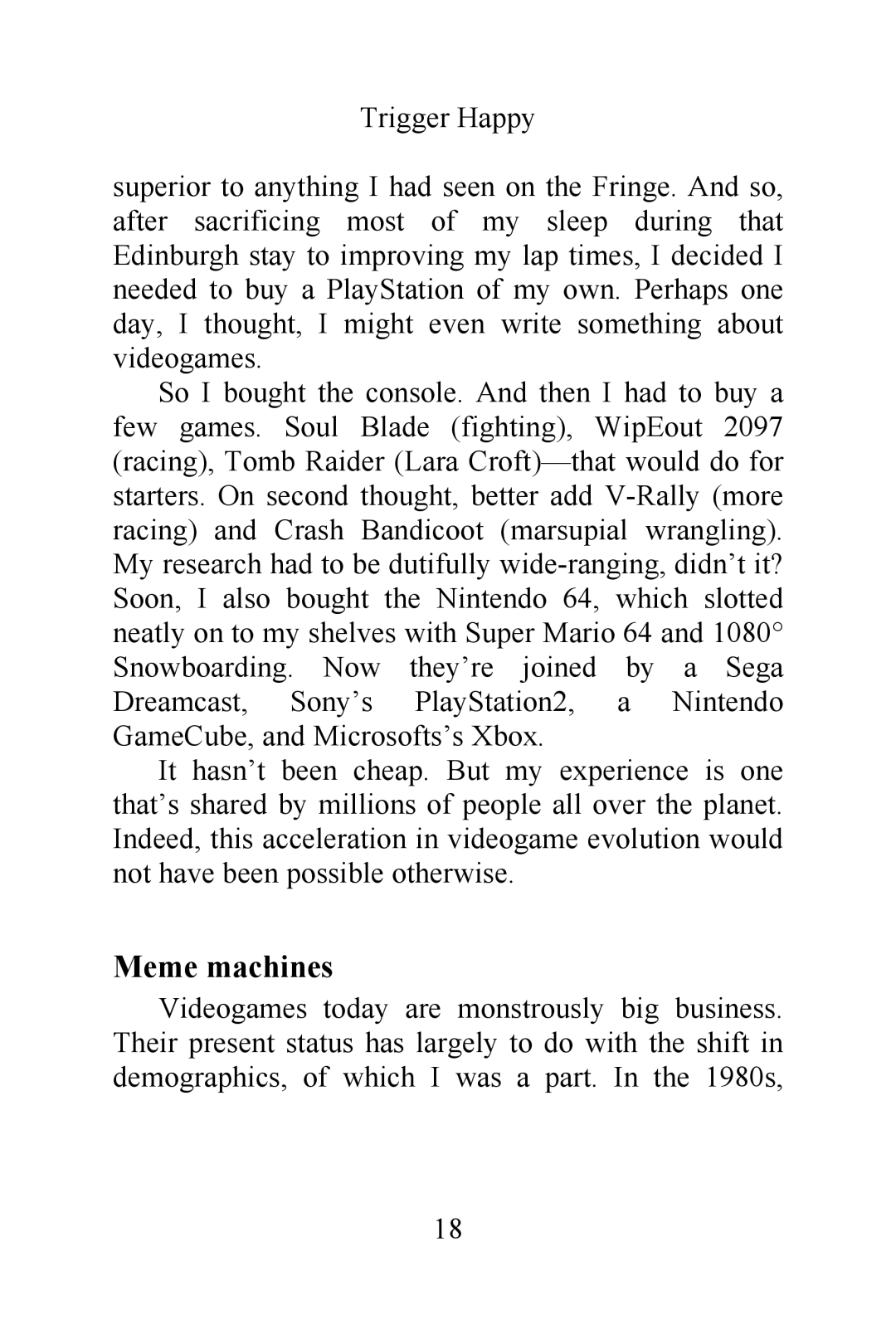Trigger Happy
superior to anything I had seen on the Fringe. And so, after sacrificing most of my sleep during that Edinburgh stay to improving my lap times, I decided I needed to buy a PlayStation of my own. Perhaps one day, I thought, I might even write something about videogames.
So I bought the console. And then I had to buy a few games. Soul Blade (fighting), WipEout 2097 (racing), Tomb Raider (Lara
It hasn’t been cheap. But my experience is one that’s shared by millions of people all over the planet. Indeed, this acceleration in videogame evolution would not have been possible otherwise.
Meme machines
Videogames today are monstrously big business. Their present status has largely to do with the shift in demographics, of which I was a part. In the 1980s,
18
